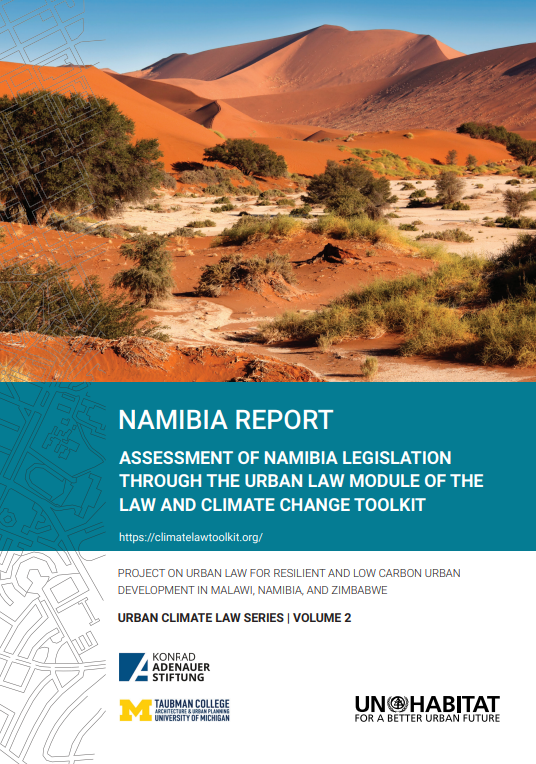Assessment of Namibia Legislation through the Urban Law Module of the Law and Climate Change Toolkit

UN-Habitat, through the Policy, Legislation, and Governance Section, in collaboration with the Taubman College of Architecture and Urban and Regional Planning at the University of Michigan (United States of America) supported Malawi, Namibia, and Zimbabwe (between December 2021 and November 2022) in conducting country assessments of existing urban laws on climate change for resilient and low carbon urban development. The project was funded by the Konrad-Adenaue Stiftung Regional Programme Energy Security and Climate Change in Sub-Saharan Africa (KAS) with the aim of improving the capacities and knowledge of the national Governments to support climate-friendly urban development through legal frameworks.
This report is the legal assessment made for Namibia. The structure mirrors the categorization in the UN-Habitat Urban Law Module of the Law and Climate Change Toolkit which has five assessment areas, namely a) Governance framework for urban and climate planning; b) Urban and territorial planning; c) Urban planning and design for adaptation; d) Urban planning and design for mitigation; and e) Economic and non-economic instruments for climate-friendly urban planning with an executive summary and recommendations for each section.
Abstract based directly on original source.


Comments